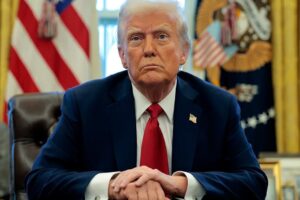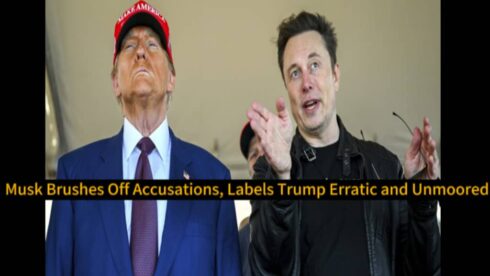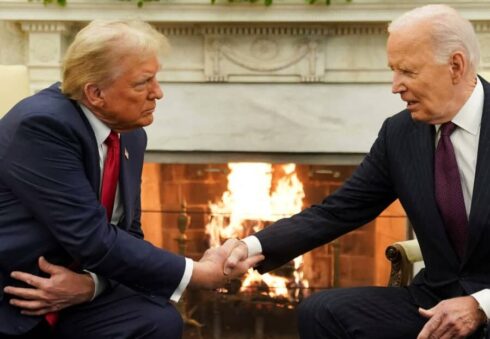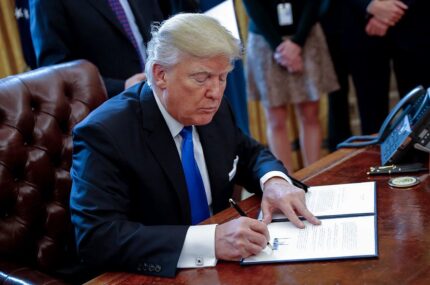The recent deportation ruling against Mahmoud Khalil, a Columbia University graduate student and lawful U.S. resident, has triggered a storm of controversy after U.S. Department of Homeland Security (DHS) Secretary Christy Noam publicly endorsed the decision on social media. Khalil, a Palestinian-born green card holder, was arrested in March 2025 under a statute that allows removal of individuals deemed to pose potential foreign policy risks, despite not being accused of any criminal wrongdoing.
DHS Secretary Noam took to X.com (formerly Twitter) shortly after the ruling, declaring, “When you advocate for violence, glorify and support terrorists that relish the killing of Americans and harass Jews, you should not be in this country. Good riddance.” Her post drew sharp backlash, as several of her claims were unsubstantiated by the court or federal prosecutors. Critics say the statement not only undermines due process but also perpetuates inflammatory rhetoric amid ongoing debates about campus activism and national security.
DHS Secretary: Background and Legal Proceedings
DHS Secretary Noam | Khalil was arrested by ICE agents on March 8, 2025, as part of the Trump administration’s directive to crack down on college protesters allegedly linked to anti-Israel demonstrations. Though no evidence was presented tying Khalil to any illegal or violent activity, his participation in pro-Palestinian protests at Columbia University became the foundation for a legal case framed around supposed national security risks.
An immigration judge in Jena, Louisiana, ruled in favor of Khalil’s deportation, citing the potential for his presence to cause “serious adverse foreign policy consequences.” However, his legal team immediately filed for emergency stays in federal courts in New York and New Jersey, which temporarily halted the deportation. Khalil’s attorneys argue the case is built on a dangerous misuse of immigration law and violates his First Amendment right to free speech.
DHS Secretary and Government Politicized Reactions
President Donald Trump was quick to praise the ruling, hailing Khalil’s arrest as the “first of many to come” in his effort to rid American campuses of what he labeled “pro-terrorist, anti-Semitic, anti-American” elements. On his Truth Social platform, Trump positioned the case as part of a broader campaign to restore what he called “American values” in higher education.
Secretary of State Marco Rubio doubled down on the administration’s position, vowing to revoke visas and green cards of individuals suspected of harboring sympathy for Hamas, which the U.S. has designated a terrorist organization. The DHS issued a statement alleging that Khalil had organized rallies and activities that “aligned with Hamas ideologies,” though no formal charges or evidence were brought forward in court to support these allegations.
Legal Experts and Civil Liberties Concerns
DHS Secretary Noam | Civil rights advocates, legal scholars, and immigration attorneys have condemned the ruling and the administration’s rhetoric. The American Civil Liberties Union (ACLU) described the proceedings as “unprecedented, illegal, and un-American,” warning that the government is using immigration law to silence dissent and criminalize political expression.
Khalil’s lawyers contend that his case sets a dangerous precedent that threatens the constitutional rights of all lawful residents. “We are witnessing the erosion of core democratic principles,” said his lead attorney during a press conference. “If lawful residents can be deported for participating in peaceful protests, then freedom of speech becomes conditional — and that’s unacceptable.”
Campus Free Speech and Political Fallout
DHS Secretary Noam | Khalil’s arrest has reignited debate about the limits of political expression on college campuses, particularly in cases involving Middle East geopolitics. Columbia University has faced scrutiny from both the Trump administration and conservative lawmakers for what they describe as a failure to address antisemitism linked to pro-Palestinian demonstrations.
The administration has since penalized Columbia with significant funding cuts, accusing the institution of harboring “anti-American extremism.” Faculty members and student groups at Columbia have denounced the administration’s actions as politically motivated and detrimental to academic freedom. University officials have refrained from publicly supporting Khalil, citing the legal sensitivities surrounding the case.
Public Discourse and Media Coverage
DHS Secretary Noam | Media outlets across the political spectrum have weighed in, with conservative platforms largely applauding the ruling, while mainstream and progressive publications have raised alarms over its broader implications. CBS News, NPR, and The Guardian have published detailed investigative reports challenging the legal basis for Khalil’s deportation and questioning the veracity of DHS Secretary Noam’s remarks.
Former federal prosecutor Nema Ramati commented on Fox News, highlighting that the immigration judge’s ruling rested solely on a statute regarding foreign policy implications. “There are two separate issues here,” Ramati explained. “This wasn’t about terrorism or free speech — the judge only considered whether Khalil’s presence could negatively impact U.S. foreign policy. First Amendment arguments will need to be addressed in federal court.”
What Lies Ahead: Legal and Political Ramifications
DHS Secretary Noam | As Khalil’s legal team prepares for appeals in New York and New Jersey federal courts, the case has become a focal point in a broader national debate about civil liberties, immigration, and protest rights under the Trump administration. Legal experts warn that if the ruling is upheld, it could embolden future administrations to use immigration law to target political dissent more aggressively.
In the meantime, Khalil remains in legal limbo — technically ordered deported, but protected for now by temporary judicial injunctions. His attorneys are hopeful that a federal district court will eventually recognize the constitutional concerns raised in the case. For many, Mahmoud Khalil is no longer just a graduate student at Columbia; he is now a symbol of the growing conflict between national security priorities and America’s foundational commitment to free speech.














